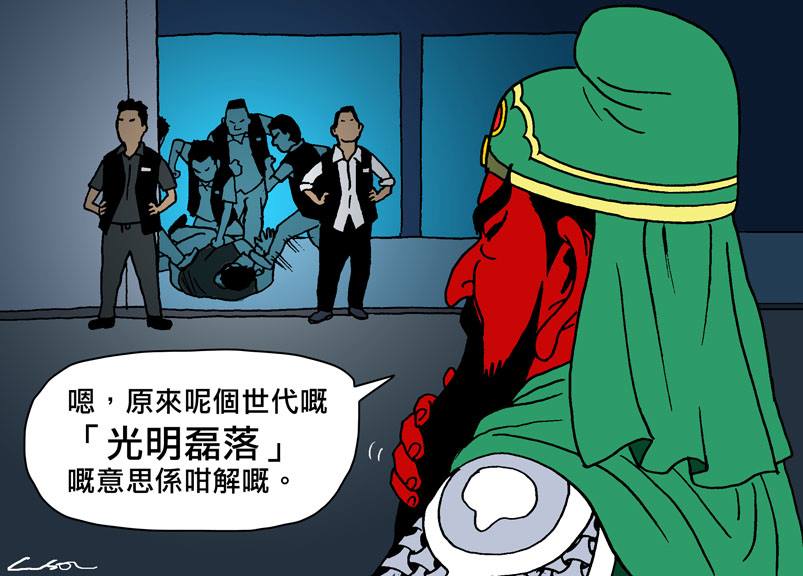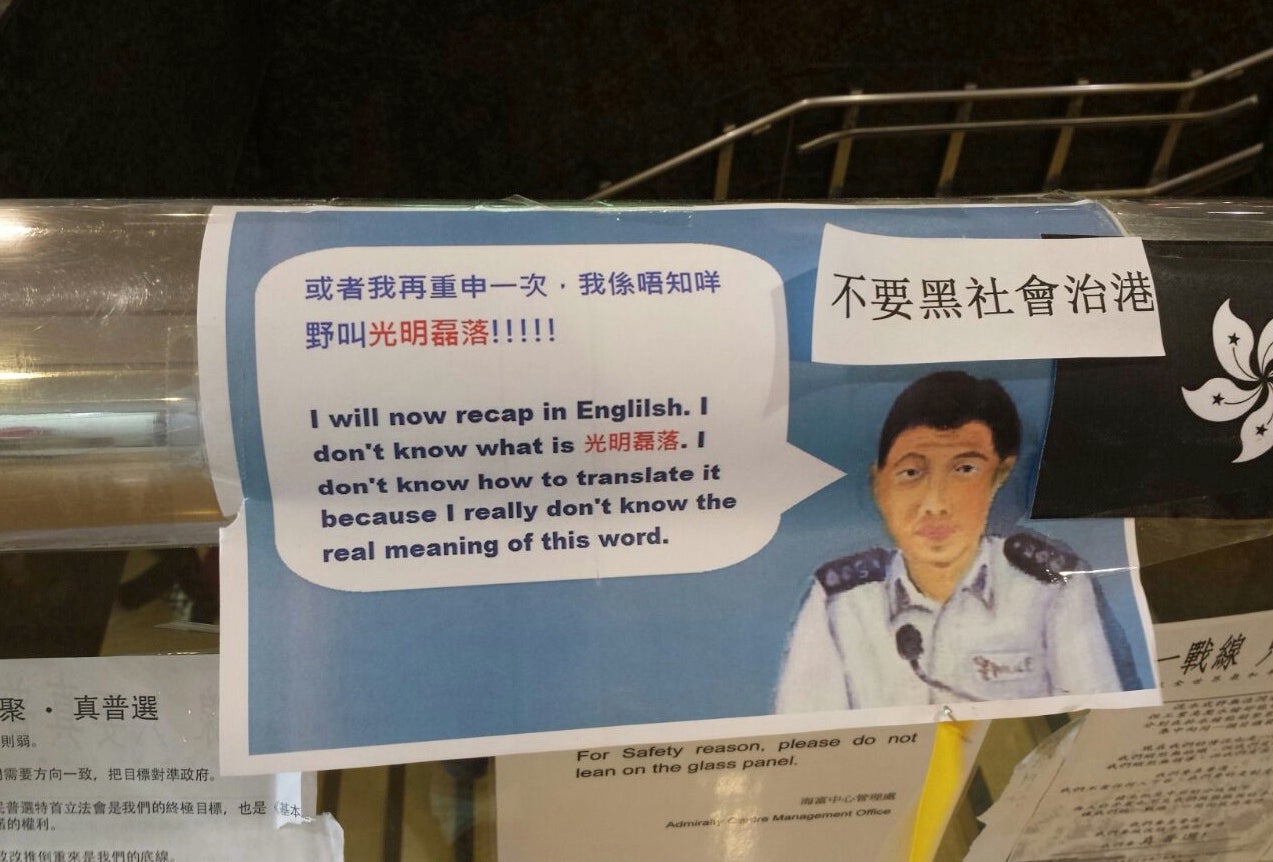After Hong Kong police are taped beating a protester, authorities are eating their words
HONG KONG—The recent words of Hong Kong’s top police liaison came back to haunt him today. After police clashed with protesters overnight—pepper spraying, wrestling, and in one case, beating a restrained man—protesters recalled a phrase that chief superintendent of the police used only hours before to describe his department—gwong ming lui lok, 光明磊落, an old idiom that means open and transparent.


HONG KONG—The recent words of Hong Kong’s top police liaison came back to haunt him today. After police clashed with protesters overnight—pepper spraying, wrestling, and in one case, beating a restrained man—protesters recalled a phrase that chief superintendent of the police used only hours before to describe his department—gwong ming lui lok, 光明磊落, an old idiom that means open and transparent.

Hong Kong’s police force has been under fire since late last month, when police fired tear gas and pepper spray on protesters armed with just umbrellas and raincoats. Until last night, the police mostly kept a distance from the protesters, opting to remove barricades on the outskirts of their occupied streets and intersections in the early morning. Defending those actions, Hui Chun-tak, of the police public relations department, said that authorities have been “gwong ming lui lok“ direct and forthright with protesters.
That claim floundered today as a video circulated showing police dragging a man—Ken Tsang Kin-chiu, a politician with Hong Kong’s Civic Party who is known to be critical of Beijing—to a corner where a group officers punched and kicked him. The police department said that the those “involved will be temporarily removed“ from their duties, but for the protesters the damage was done.
“The police used the phrase to describe their operations…but this morning, they kicked and hurt a protester in a dark corner, creating a strong contrast with what they said,” said 20-year-old protester Adrian Leong.
As a result, gwong ming lui lok, which can also mean “basked in light,” took on new meaning today. (One of the most famous uses of the phrase is that of a Qing dynasty playwright, Pu Songling’s description of a character who never feared ghosts because he had no secrets.)
Critics took to social media to make fun of the police. One blogger wrote on Facebook, that according to the police, the definition of “gwong ming” or “light” is: “to use a flashlight to shine light directly into a protester’s eyes while simultaneously pepper spraying them.” Meanwhile, lui lok, or literally “falling rocks” means “to lift a protester up and then throw them onto the ground, where you punch and kick them.”


